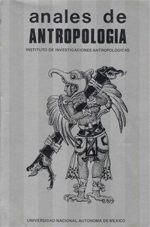Matrimonio y grupo domestico en Cataluña
Main Article Content
Abstract
Social stratification, sexual and balance of the household, and development of domestic cycle are important considerations for marriage policy in rural Catalonia. Household may adopt several policies: double marriage restores sexual balance to the domestic unit; sister exchange preserves social status by saving dowry payments and also reinstates household sexual balance: levirate and 8ororate re-establish sexual balance and in addition provide a culturally adequate parent substitute; matrilateral cross-cousin marriage is frequent because women reinforce family ties; but patrilateral cross-cousin marriage is nonexistent since agnates break fami]y ties. Contrasting marriage patterns for inheritors and non-inheritors reinforce rural stratification, as some individuals change levels. Marriage clusters exchange partners between households of similar economic level. Marriage policy between different social groups is similar to mayu-dama, but in Catalonia men, women, and goods all circulate in the same direction. Households with high socio-ecorromic standing tend to disappear because of demographic depletion, but are replaced by upwardly mobile households of lower socioeconomic standing that among several strategies utilize prudent marriage policies.
Downloads
Download data is not yet available.
Article Details
How to Cite
Iszaevich, A. (2010). Matrimonio y grupo domestico en Cataluña. Annals of Anthropology, 21(1). https://doi.org/10.22201/iia.24486221e.1984.1.15865
Citas en Dimensions Service
Esta revista usa una licencia CC del tipo CC BY-NC-ND 3.0. Se maneja bajo el esquema de acceso abierto, con una licencia Creative Commons Attribution-NonCommercial-NoDerivs 3.0 Unported.
